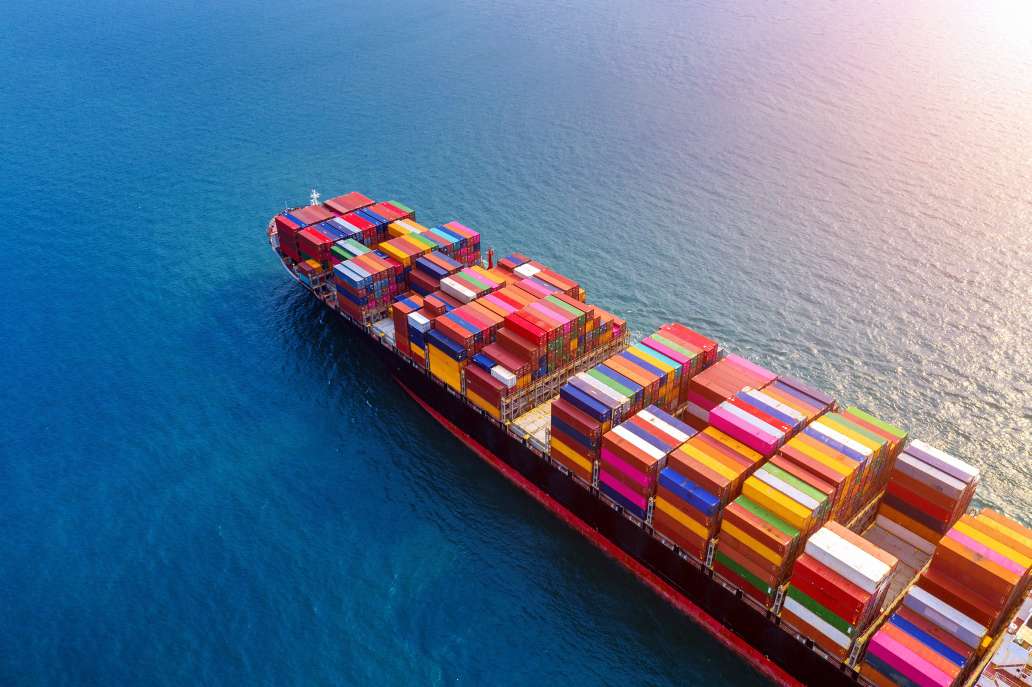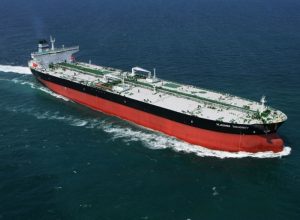Antonio Guterres led calls on the worldwide shipping industry to step up to the climate challenge by not only adopting a 2050 net-zero target but agreeing on a global levy on ships to achieve it at a summit in London this week.
The International Maritime Organisation is deciding how to cut greenhouse gases from an activity that contributes 3 per cent of emissions. Delegates have been asked to overcome divisions on the surcharge that UN Secretary General Mr Guterres described as necessary to keep the world on a pathway to capping global warming at 1.5°C above pre-industrial levels.
“Measures such as carbon pricing will push the industry in the right direction by making zero-emission fuels more competitive,” he said, “while the finance generated can support the just transition in developing countries and address the needs of those most vulnerable to the climate crisis.
“The industry has seen some progress but it must move much faster to get on track and drive investment and innovation.
“I urge you to leave London having agreed a Greenhouse Gas Strategy that commits the sector to net-zero emissions by 2050 at the latest – and that includes ambitious science-based targets starting in 2030.”
Simon Stiell, the UN’s climate change committee executive secretary, also pushed for more political engagement from the maritime industry on the 1.5°C target in the run up to the Cop28 meetings which open in UAE in November. He warned against complacency from the states that make up the rule-setting organisation amid calls for faster reform that increases compliance with the 2015 Paris Agreement.
“This body has to do more on climate change now,” he said. “If parties represented here at the IMO choose a low-ambition pathway, our ability to meet our Paris commitments will be compromised.
“It is possible to limit global warming to 1.5°C with rapid, deep and immediate emissions reductions across all sectors of the global economy. How you revise IMO’s GHG strategy is critical for keeping 1.5°C alive.”
Efforts to decarbonise so far centre on a 2018 IMO decision that instructed shipping firms to reduce CO2 emissions by 50 per cent by 2050, from 2008 levels. The target is considered insufficient given the level of global emissions and compared to other industries, including aviation, which is aiming for net zero by the same midcentury deadline.
The revised strategy is looking for a 20-25 per cent reduction in greenhouse gases in 2030 and up to 70 per cent in 2040. The language in the talks for net zero is either 2050, with some caveats, or by the middle of the century. These measures are set to gain backing even though some countries have said a net-zero commitment does not capture how the industry can change its operations to meet climate goals.
IMO Secretary-General Kitack Lim told a briefing that the maritime industries, including shipbuilding, energy and finance as well as cargo, could not ignore the need for climate policies. “I don’t think we will fail to adopt a decision,” he said in a briefing. “We have to adapt. We need the financial resources to help the disproportionally impacted countries in different ways.”
An IMO panel meeting in May said a levy on emissions from shipping as a part of a basket of measures is critical to the organisation’s actions required for meeting the 1.5°C temperature goal. Although the measure would be adopted in 2025 and rolled out two years later, the type of tax or level is still to be determined in talks this week.
The idea is that the funds collected from a universal IMO carbon levy should contribute towards funding a just, fair and equitable transition to a net-zero economy. Advocates of the measure want to set a rate of $100 per tonne of greenhouse gas. The surcharge on the ship fuel consumed could raise up to $80bn a year.
A powerful move to push back against the levy proposal includes countries from Australia to China. Beijing’s delegation called for the “flat levy/fund/contribution/fee” to be renamed in the final communique so that exemptions could be included.
The meeting at the body’s permanent headquarters across the river from the British parliament is pitting climate-vulnerable nations – particularly Pacific islands – and richer countries against big exporters like Brazil.
During the Brazilian intervention, the representative warned against poorer countries seeing the shipping levy as a route to getting compensation for damage from climate change from world trade. Brazil believes a tax of that nature would cause “structural damage” to the global economy.
The vast majority of the world’s 100,000 cargo ships – which carry 90 per cent of the world’s goods – are powered by high-polluting diesel.





